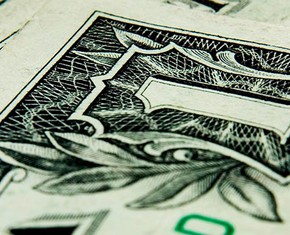The views expressed in our content reflect individual perspectives and do not represent the authoritative views of the Baha'i Faith.
All my life as a student of economics and also as part of the educational system, I have marvelled at the lack of financial knowledge in our society.
As a Baha’i, my Faith puts a great deal of importance on education, and always emphasizes both spiritual and material education:
The primary, the most urgent requirement is the promotion of education. It is inconceivable that any nation should achieve prosperity and success unless this paramount, this fundamental concern is carried forward. – Abdu’l-Baha, The Secret of Divine Civilization, p. 110.
Progress is of two kinds, material and spiritual. The former is attained through observation of the surrounding existence and constitutes the foundation of civilization. Spiritual progress is through the breaths of the Holy Spirit and is the awakening of the conscious soul of man to perceive the reality of divinity. Material progress insures the happiness of the human world. Spiritual progress insures the happiness and eternal continuance of the soul. – Abdu’l-Baha, The Promulgation of Universal Peace, p. 142.
Education has one primary goal: to prepare young students for their adult life ahead. In my experience, though, our educational system usually manages to entirely ignore one of the most critical aspects of their lives—financial literacy. Since “material progress insures the happiness of the human world,” we’re failing our students if we leave them uneducated about the material and monetary aspects of life.
I am not sure why those who design educational systems do not think that managing finances is essential. Whatever the reason, the fact is that many of my ex-students come to me and say “I was cheated out of years of my life because nobody taught me how to manage my finances.”
Students today often leave school with mountains of debt, which can cripple their futures. They don’t know how to manage or save, so many spend whatever they earn, and in most cases spend way beyond their earnings, which can soon lead them to bankruptcy. If they don’t leave school with massive indebtedness from student loans, chances are they’ve run up major credit card debt during high school and college. A recent study in The Journal of Applied Social Psychology concluded that we need to educate students in financial literacy:
The issue of credit‐card debt among college students has received increasing attention. This study explored factors hypothesized to be causes and effects of credit‐card debt in 448 students on five college campuses. Students reported an average of $1,035 (SD=$1,849) in debt, including students without credit cards or credit‐card debt. Lack of financial knowledge, age, number of credit cards, delay of gratification, and attitudes toward credit‐card use were related to debt. … Students reporting greater debt reported greater stress and decreased financial well being. Results highlight the need for comprehensive financial literacy education among college students.
Our educational system aims at arming students with the tools to make them successful materially—but they rarely teach the real meaning of that success. Yes, business schools teach the concept of competition and eliminating rivals as means of success—but without mentioning the virtues of co-operation.
On a broader scale, much of our higher education follows the old, materialistic notion that having more money is the highest goal of success, without ever mentioning the spiritual or moral side of life. If we began to teach students more about financial and spiritual literacy, they could learn how to turn material wealth into spiritual success:
Wealth is praiseworthy in the highest degree, if it is acquired by an individual’s own efforts and the grace of God, in commerce, agriculture, art and industry, and if it be expended for philanthropic purposes. Above all, if a judicious and resourceful individual should initiate measures which would universally enrich the masses of the people, there could be no undertaking greater than this, and it would rank in the sight of God as the supreme achievement, for such a benefactor would supply the needs and ensure the comfort and well-being of a great multitude. Wealth is most commendable, provided the entire population is wealthy. If, however, a few have inordinate riches while the rest are impoverished, and no fruit or benefit accrues from that wealth, then it is only a liability to its possessor. – Abdu’l-Baha, The Secret of Divine Civilization, pp. 24-25.
If we teach our students, and our children, about the basic value of money and the ways to responsibly manage and spend it, they can learn about the importance of planning for the long run and saving for a rainy day. If we teach our students and children about love for humanity, they can learn about the fact that they can use money for good causes:
If, on the other hand, it is expended for the promotion of knowledge, the founding of elementary and other schools, the encouragement of art and industry, the training of orphans and the poor—in brief, if it is dedicated to the welfare of society—its possessor will stand out before God and man as the most excellent of all who live on earth and will be accounted as one of the people of paradise. – Ibid., p. 25.
Whatever the reason for this shortfall in financial literacy in our education system or our society, we need to begin making it clear that by our actions we can set an example for others about how our material possessions can be used for the betterment of humanity. We can face and conquer the cancer of materialism by education, and make a lasting contribution to the welfare of humankind.
















Comments
Sign in or create an account
Continue with Googleor